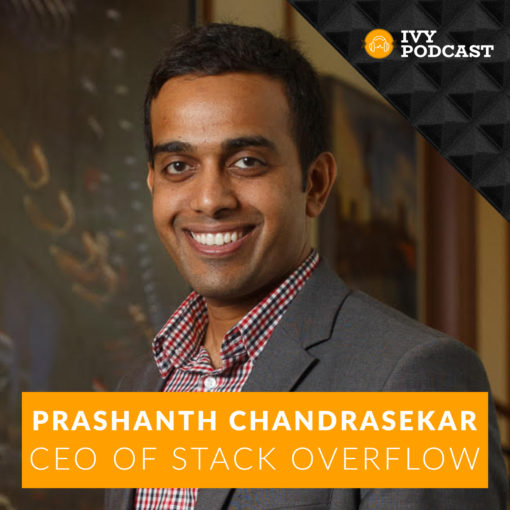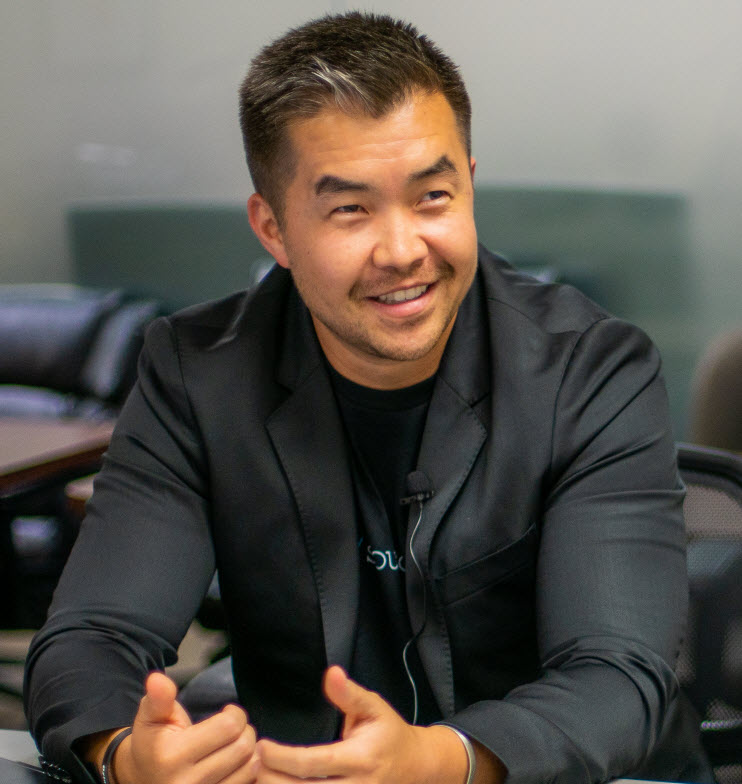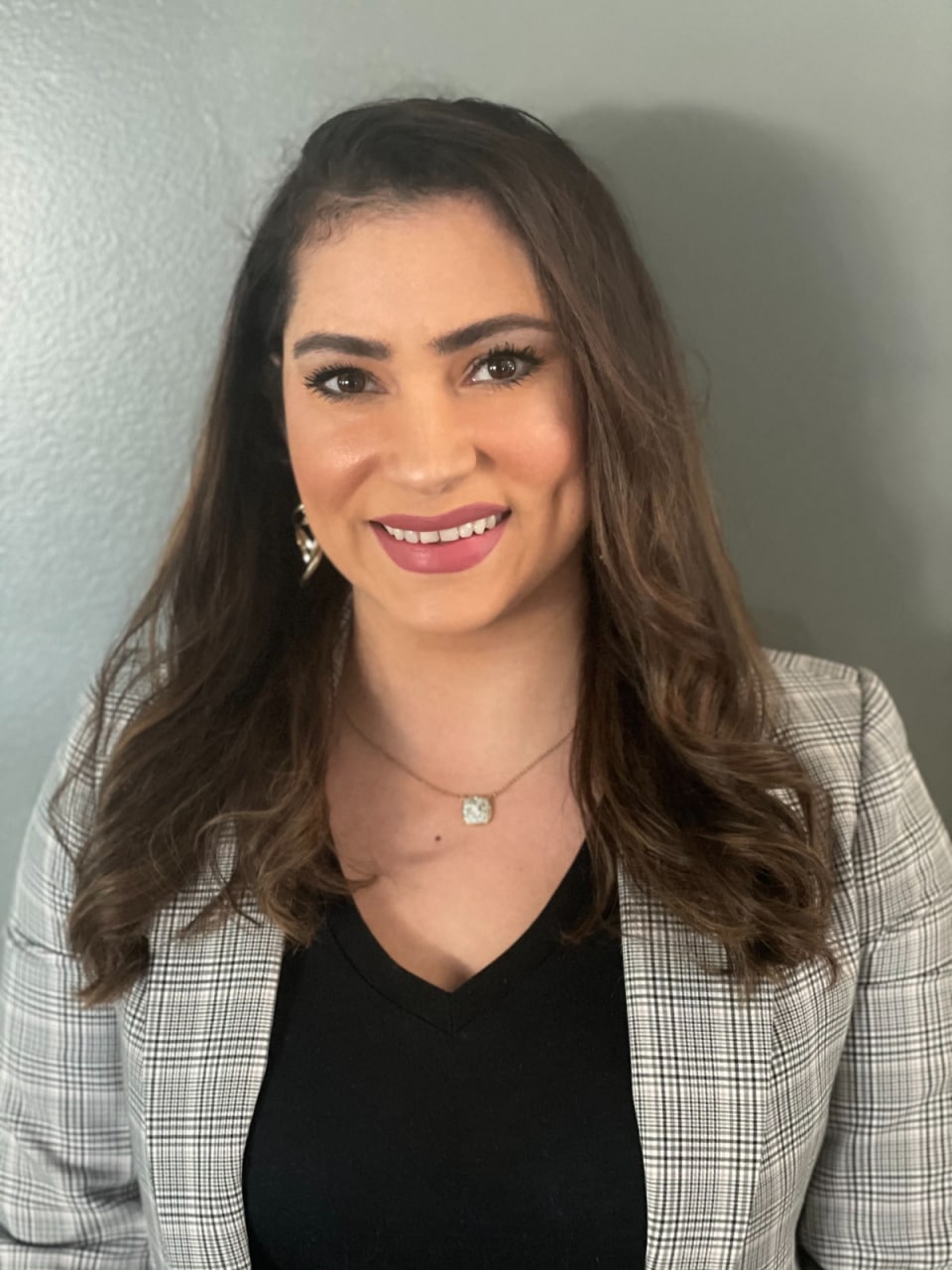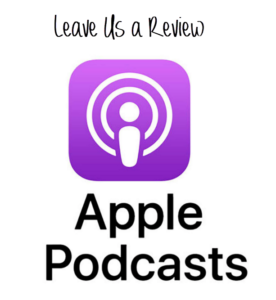
Pablo S. Quesada focuses his practice in the areas of corporate, real estate and international law, including mergers and acquisitions, private equity transactions, stock and debt issuances and offerings, financing and lending transactions, domestic and international commercial transactions, and other general transactional matters. Mr. Quesada has extensive experience in matters affecting corporations, limited liability companies and partnerships, and in manufacturing, distribution, licensing and technology-related transactions. In addition, given the litigation and trial experience gained by Mr. Quesada early in his career, he provides his expertise in the corporate arena to assist in the handling of complex commercial litigation matters involving corporate, stockholder and/or board governance issues. Mr. Quesada also serves as General Counsel and is a director for one of the largest U.S. military apparel manufacturers.
Episode transcription:
[00:00:00] Pablo Quesada: The trouble that use that you saw and you continue to see, and the big item you need to be careful with when you're dealing with contingent workers is, you know, when you're hiring somebody as independent contractor, it becomes the issue of misclassification. And you know, we've seen that now for many years, for over a decade. Misclassification issues, which means somebody who is effectively an employee of your company, but you're treating them as an independent contractor. [00:00:40] I'm Pablo Quesada. I'm a partner at SMGQ mall in Miami, Florida. [00:00:46] Jahn Karsybaev: [00:00:46] I will thank you so much for finding time to join us on the podcast today. A great way to start off the 2021 and just real quick, before we get a lot into the conversation that I wanted to have with you, share with us a little bit more about yourself, your backgrounds, where you come from and kind of career-wise, just share a kind of high-level timeline. [00:01:10] Pablo Quesada: Absolutely. Well, I'm a local Miami person. I was raised in Miami. I went to the University of Miami for undergrad. Then I went to Florida state for law school. Soon after law school, I came back to Miami. I worked at one of the larger Miami firms or with some of the most probably locally prominent attorneys. [00:01:28] And then I had an opportunity to go to a national firm and work out of their Miami office. And I've been practicing now for over 25 years, but that's where I got my start at the big national law firms and had opportunities to work on very interesting clients matters. And after I worked in the corporate securities department, so I did mostly corporate transactional with about 30% of my practice being public company work. [00:01:54] So actual public filings, quarterly reports, annual reports. Interestingly I was able to work for about four years when I was at the firm. It was Kirkpatrick and Lockhart at the time KNL Gates, which is Bill Gates, his father, actually, he was a well of the Gates law firm. They merged at some point, but back then I had the opportunity to work with a Miami company called Brightstar, which was a telecommunication logistics company, basically cell phone distribution, and the CEO of that company was much of a settler cloud who is now with SoftBank and starting division funds. And he's been very active in the Miami community to fund startups and technology companies. I had an opportunity to work with him for about four years. That was a great opportunity because that was really his first company that he took it. I think when we were working together, he took that from like 300 million in sales to 5 billion in sales, over a span of like four years. [00:02:49] So it was pretty incredible. It was a great experience. I did that. And then I always had the bug to go in-house to go on the corporate side. And I had an opportunity, a very good friend of mine who's still at Visa, the credit card company. He gave me a ring one day and he said, listen, they're looking for Latin America. [00:03:06] They need counsel who will look over their day to day activities and to give guidance for the Latin American region. So I took that opportunity. I always wanted to be on the corporate side, on the in-house side. And it actually worked out great because I had already built up great experience from counseling clients, working with some great mentors, some great corporate attorneys that I got to learn from, which I think is vital for every young person. [00:03:30] It's not just law firms. It's you take that across the board? Any industry it's just important to have good mentors and to have a good breadth of experience. So I went to Visa and it was great because I got to sit on the other side of the table. Now I was the client. And I got to see what it was that I needed from my outside counsel. [00:03:48] So it gave me a great opportunity. And then you also got to see what corporate America is like. I had not realized as an attorney on the outside. Sure. You know, your clients are concerned about legal fees and expenses, but when you get on the insight, that's when you really realize they do have these actual budgets that they have to kind of control and they get measured on those budgets. Bonuses could be triggered by, you know, your performance compared to budget. And so that's when I really realized how important that was, and also the support that the in-house legal gave to their local business teams. So it's not just providing services to in-house counsel, but it's recognizing that that in-house counsel is turning around and has business teams for putting pressure on them to get deals done. [00:04:36] Transactions consummated, and you have to provide that support. So for me, it was a great opportunity. I was there for a couple years. And then I had the opportunity about back in 2006 to launch my own law firm. And I started with two colleagues of mine that I knew from the community. It was, we started as a three-person firm and we've built the firm. [00:04:57] Now we're probably about 35 lawyers in full service. So everything from transactional litigation, employment, immigration, basically we've got all the practice areas covered. So, that's been a great opportunity. So I've also seen in growing the firm, I've seen the importance of recruiting talent and maintaining talent, and thankfully at our law firm. We've built it over time. As I mentioned from three to over 30, and we've had very good success in retention which has made me think, you know, what is key. And obviously, you hear when buying property, whether it's a stock or property, you know, get it at a good price, it really depends on the purchase. You know, how good of an investment it's going to be. And it's the same kind of thing when you're recruiting talent. The key is being able to identify early on, you know, the type of person that's going to fit well or mesh with your culture and hopefully make that long-term obviously, we're all looking for talent that has the experience and the expertise that's going to drive your organization forward. But you're also looking for that personality, that person who meshes well with your culture and you can see either. Add to your culture, you know, mesh with your culture or build you in a new direction. Maybe it's something that your organization is lacking, even from a culture perspective that you see that somebody would be a good fit. And thankfully we've been very successful on that front. Our core group has been together since the beginning and everyone we've brought on has remained with us. So that's been good to see. [00:06:38] Jahn Karsybaev: [00:06:38] Wow. That's super exciting. And thanks for sharing that background. So, you know, very diverse. Started out on the corporate side and then launched your own company. So I want to spend a little bit of time talking about that transition. I think that's pretty exciting because a lot of guests that I talk to on the podcast go through similar transitions, whether they started their own companies and then they get acquired and they transitioned to the corporate side or vice versa, you know, just like myself. We started out on the corporate side. Now we're transitioning to something that we built ourselves. So that's an interesting dynamic there. You mentioned Marcella. I've read a little bit of bottom, kind of his background and funny enough, we actually pitched them to come on the podcast. Have you heard just yet, but that would be pretty cool. The other, the other part that you've mentioned is, from a standpoint of recruitment and really surrounding yourself with kind of the A-players, with the best talent. That's at the top of the mind for every executive, every organization, whether you are recruiting actively or inactively, it's a 24/7 game. So from your standpoint, and I guess unrelated to that from legal, from compliance, from risk mitigation or anything in that space, I asked that question a lot of the guests, what are the different trends in this space or ideas that really excite you these days? What are you researching? What are you looking to invest in further, perhaps, share kind of the latest research bookmarks of Pablo? [00:08:18] Pablo Quesada: Yeah. Well, one thing that I would tell you, I'm fortunate for being a corporate attorney is not only do I get to see the law firm experience and our own, we're running a business as well. So we see how important talent is and you know, where the industry's headed. But I also have an opportunity to effectively serve as general counsel to a bunch of different companies in different industries. And the one thing I would tell you that they all kind of tied together. You know, it's two key factors when you're talking about land purchases or real estate, people say location. When you talk about building a business, I mean, it comes down to talent and technology, and it's pretty incredible. I mean, it doesn't matter the industry, everybody wants to get that key talent and everybody's looking for that technology. That's going to differentiate them. And so as a result, what ends up happening is that your talent has to be technologically savvy. I mean, the talent that you're seeking is the person who knows how that new technology works and how to drive that forward. From the law firm industry, you know, it's interesting. What we've been seeing more is, you know, before it was your typical track, you know, you joined a law firm, everybody was an associate who joined the law firm. [00:09:31] You had partners, the whole drive was to become, you know, get from an associate to become a partner. And that's kind of, you know, some of that, it remains true, but like in every other industry, what you're seeing more is attorneys who love flexibility. So you're clearly seeing from an employee perspective more people who, you know, want to be a contract attorney or want to have some sort of different relationship with the law firm, other than the usual track of, you know, I'm just going to continue down this path. [00:10:01] And so you see that that's something that you see from an employee wanting, and I think it's with this generation, even in particular, is they want to have flexibility. And we're seeing that now, even during the time of COVID with the flexibility of even not having to come to the office. And we've seen that successful here at the law firm itself. And, you know, we have attorneys who even worked from, for example, Colorado. And it tends to be the younger attorneys who want that flexibility, want that lifestyle and they can still be efficient. They can still serve the client. There's really no need for them to be in the office necessarily. [00:10:38] Although most of our attorneys come in, there is something about that flexibility. And we've seen that contract attorney type of relationship and you would see it, and that started at the larger firms when you have discovery, which is basically when you're exchanging information to learn more about a case from the opposing side, you're making requests for production, that type of stuff you would always see. You know, there had already been a place where law firms were seeking talent attorneys just focused on that. And they would hire them on a contract basis, on a project basis, just to come in and handle that type of work. And that's how it kind of started. And then you even saw it with some basics, you know, it was interesting, there was a time there where they were outsourcing this to foreign countries, to have attorneys from other countries do some basic research. Because it was just cost-effective. So it was interesting. It's interesting to see everything that the law firms have tried to reduce their own costs and to maximize their efficiency. And I think you see that played out not only at law firms, but in your industry. Obviously, you know, that whole contingent workforce is key. [00:11:53] Jahn Karsybaev: [00:11:53] Oh, that's exciting. And something that you've mentioned resonates well in terms of that flexibility. And it leads me to, you know, the further points for what I wanted to discuss with you on that contingent workforce perspective, because a lot of clients, a lot of companies that we deal with partners or some of our customers, a lot of them are corporate sector and they're developing strategy on how to best leverage, utilize contingent workforce because of what you were talking about. [00:12:21] That flexibility aspect is really to be able to, at the end of the day, it's also generational not being tied to a single organization as a full-time employee has that flexibility, but also on the corporate side as well, companies are looking for that. To be a little bit more agile, to scale at growth or downsize or upsize in all different directions. [00:12:46] So for companies that are looking to develop that strategy to best leverage contingent workforce from a legal standpoint, what have you seen in terms of the challenges that the companies are facing and what would be some of the kinds of recommendations to address those? I realize it's a very loaded question, but from immediate needs, just share with us your perspective from that standpoint. [00:13:12] Pablo Quesada: And now I would probably focus on one or two points because this is a very broad area and there were so many issues that you can dissect. And, you know, we could probably do a week's worth of podcasts, you know, just touching on these issues, but something that I've even seen in my practice and over the years, and even when companies started to get into the contingent workforce. [00:13:34] So really what it was “Do I need a full-time employee or is there a benefit to me hiring independent contractors?”, and you would see a lot of employers even trying to manage it themselves, and the trouble that I use that you saw, and you continue to see, and the big item you need to be careful with when you're dealing with contingent workers is, you know, when you're, when you're hiring somebody as independent contractor it's and becomes the issue of misclassification. [00:14:00] And you know that, we've seen that now for, for many years, for over a decade. Misclassification issues, which means somebody who is effectively an employee of your company, but you're treating them as an independent contractor. Andthat creates a number of minefields. They had to be careful because there's potential liability, because when you hire somebody as an independent contractor, you're not necessarily affording them the benefits that you're affording to your employees. And you're also not doing certain tax withholdings that you would be doing with respect to your employees. So there are cost savings that are attractive to companies, but in the method, in which it gets implemented and depending on the class of employee, Depending on the control you have over that employee, you could end up in a situation where you find yourself identifying somebody as an independent contractor, treating them as such for tax purposes and labor purposes. [00:14:56] And in fact, you know, it's not your call at the end of the day. At the end of the day, it's the IRS and the department of labor are going to decide whether in fact, that person should have been classified as an independent contractor or an employee. It's not enough to have a written agreement that says you are an independent contractor. And in fact, having that type of written agreement could even be used against you to reflect that arguably you were doing it for the purpose of disguising the true nature of our relationship. So those are things that I would say. [00:15:30] That's one big area that I find that companies have to be careful with. And that's great, because as a result of that, what we've seen is that companies aren't necessarily in the best position to be making those determinations or even companies are in the business, whatever their core business is, and their expertise isn't necessarily payroll, their expertise isn't necessarily back office. Is it making these types of determinations? You know, some companies of course have legal counsel and have full-fledged HR departments, compliance officers, but at the end of the day, there are so many issues that they're even looking at that it's nice to have somebody to be able to come in almost with a fresh set of eyes, and kind of consult with you and analyze and give you some different alternatives as to how you can avoid or, you know, identify areas that you may have some weakness and also see, and perhaps even implement processes that could assist you. [00:16:38] So you, you know, we've discussed before, you know, there are opportunities, things such as the employer of record before, you know, companies are familiar with these types of arrangements, because they'll call it payrolling. You know, they want to bring somebody on, but they're aware of the compliance issues. [00:16:59] They're aware of some of the difficulties that they could have with misclassification. And there are providers out there that now can come in and provide these services and who have a focus on compliance. So we're not only looking at cost savings when we're looking at these types of arrangements, which is how they started. As I mentioned, the whole thought of having independent contractors was cost-effective for me to hire somebody as an independent contractor, as opposed to the employee, but it doesn't become cost-effective if you run into compliance issues. So I think that what we're seeing now is more enterprises going out there and saying, you know, help me on the compliance front. [00:17:37] Let's make sure we're doing this right. And we also see situations where in the past you've had companies such as staffing companies serve as do this payrolling type of service. But the reality is staffing companies are not built for that. Staffing companies really were built to find candidates. You know, that's what they do. [00:17:56] They're great search firms. They can do a great place. And there are some staffing companies that may have the compliance aspect to it. But unfortunately, you know, there are many that run a foul, you were talking, what about smaller, smaller types of enterprises? So now there is a need that we have seen at least in counseling clients, where there is a benefit to have these providers come in and not only benefit the companies, but they also benefit staffing companies. [00:18:24] I mean, they actually are a support for the staffing company, you know, staffing companies don't necessarily have to go now and get a compliance officer. You know, you could partner with these providers and you know, and go out to the market and combine forces and I think that's what you're going to see in the future. I think that's the use, and COVID has probably accelerated this process. Yeah, [00:18:46] Jahn Karsybaev: We've seen a lot. We've seen that a lot in this market, especially, you know, like you've mentioned with a pandemic everyone's shifting to completely remote setting that kind of elevated, that needs to be a lot more flexible from that contingent worker perspective and to kind of, to recommendations that you were providing in the sense to be able to, for companies that don't necessarily have the right infrastructure in place that you know, that legal administrative operationally to be able to handle that proper worker classification. So to say it makes sense to outsource a lot of those duties to other, other companies that are actually focused on that. Technology is another great example to be able to handle a lot of that employee onboarding benefit processing. [00:19:31] Payrolling, I think there's a lot of opportunity there. And when we talk about that aspect of worker classification, it's such an important yet oftentimes overlooked issue that I see day-to-day with a lot of organizations where a lot of the clients that we serve from your standpoint, aside from kind of the tax implications what other legal considerations that the company should pay attention to when thinking about improper or misclassification of a contingent worker, can you share with us any examples that come to mind when, you know, from the legal perspective? [00:20:13] Pablo Quesada: Yeah. When we, when we talk about misclassification, it's a number of factors that we have to look at, but it's as simple as whether somebody is an employee, ultimately it comes down to whether you're in control, you know? So it becomes a question of, are you controlling the details of the work that's being performed? No, it's okay to give a guidepost as to, because at the end of the day, you have a project you're working on. [00:20:37] There's an end result you want, and there's nothing wrong with giving direction as to what it is that you need, but you need to be careful with respect to requiring a certain number of hours of work schedule, providing employee training that you may provide to other employees. Those are all types of factors that identify that somebody is really acting more as an employee, as opposed to an independent contractor who's able to set their own schedule, who is an expert in their area and is providing the services according to their own discretion effectively. So when you have this measure of control coming from the company itself, that's where you start seeing these misclassification issues. [00:21:22] And I would say that they can't, and of course that runs the gamut of also, you know, you also have issues with regard to compensation. How are you compensating these employees? You know, it's so that's also an issue that arises. So you have to look, does the employee carry insurance? [00:21:40] Does the employee is employed providing for its own expenses or are you reimbursing the employee for expenses? Are you setting up the employee’s basically business? Remember when you have an independent contractor, you're really hiring a business. It could be an individual, but you're effectively hiring somebody who should be performing on their own. [00:22:00] So to the extent that you're assuming all the obligations that somebody who would be operating a business, if you're assuming all those obligations, then that person no longer looks like an independent contractor. And it starts looking more like an employee. And aside from the misclassification issue, another, another item that you could run into. And I would say it's a second point that would be a joint employer liability. So sometimes a corporation could outsource payroll functions. You know, and we see that with videos, you know, you're basically just having somebody else doing the payroll, but that does not mean that you're no longer the employer of that individual. [00:22:39] Now you run into an issue where there's enjoined employer liability. Both parties could actually be responsible. For, for violations of various laws. And so it's very important there also that when, when you do hire a provider and that provider is serving you as the employer of record and is going to be serving as the employer, you need to be certain that not only are they doing the payroll and benefits hiring, firing, but that organization really is truly the employer. [00:23:11] And really is setting forth the ground rules and is really overseeing that employee. You don't want to be transitioned. You don't want to be in a situation where effectively. You know, as the client, which is using that resource or that talent, you don't want to be in a situation where, where you are effectively taking control of that relationship. [00:23:31] And you really are the one hiring and firing and, and those types of issues. So we also have to be careful with respect to joint employer liability, and that can also be taken care of, in your agreements. And you have with your providers, obviously you should always have your legal counsel look at those, your in-house counsel. [00:23:48] Just to make sure that, you know, and it's important to say two things. Number one is we've discussed various factors that are important. Number one is when you hire talent, and your provider, your employer of record what they should be doing is number one is they should really almost have a worksheet that almost, or a checklist that actually, you identify the specific talent you're hiring and you list out these factors that the department of labor provides you in the IRS. [00:24:19] And you should try to go through that checklist and kind of verify that, in fact, if somebody is going to be an independent contractor, that they, in fact, based on the client requirements, satisfy the independent contractor. Because if not, then let's not identify them as independent contracts. [00:24:36] Let's go ahead and call them what they are, which is an employee. And that is something that, you know, a company like myBasePay, for example. You hire the person as an employee. It's not an independent contractor relationship, so that's key. And then, part of that is don't lie to yourself. [00:24:54] You know, look at that checklist, make sure you're compliant. And then importantly is a lot of people, and this isn't just limited to employment issues. A lot of times people sign contracts, right? And with the best intentions, and these are the terms of the agreement, this is what we agreed to. You put that contract in a drawer, and then you start putting that emotion and you start executing on that contract. [00:25:16] Well, many times the way that you're engaging in that relationship is much different than when you identify in the contract. So you just need to be careful that if you're agreeing, that certainly these factors are going to be handled by the employer of record or by the provider. Then you're in a situation where once that person, that talent, and if you're the company, you hire this person, they, you start, you don't mold that into a different type of relationship where you don't start providing in-house training. [00:25:46] You're not requiring a work schedule, you know, so you have to see how you are putting these things in practice. And that's why it's also good to have. You know, a provider who can come in because it kind of gets lost in the mix within a large organization. And if you have somebody on the outside, who's effectively monitoring that relationship, that's been maintained. [00:26:08] You know, they're all, they're also the ones who could identify red flags for you. And so again, I think it comes down to being an attorney for me, even more than the cost savings is compliance is so important. [00:26:21] Jahn Karsybaev: [00:26:21] Right. No, that's, you know, those are great recommendations and I definitely appreciate a lot of that insight from. [00:26:30] From your perspective, you've mentioned a couple of times, you know, the role of general counsel and I, you know, spent a good amount of my time advising startups, younger entrepreneurs mentorship, and a lot of guidance, you know, from that standpoint. And a lot of times with the younger entrepreneurs or the startups that are just getting launched, you know, they don't necessarily have the means to, you know, get the access to the general counsel, that legal advice perspective. What are your recommendations? To a lot of companies that are starting up in this space, especially in technology, to be able to get access to the general counsel, to get that legal advice, especially at the very beginning when a lot of those things are getting formed. So just curious to get your perspective on how that relationship typically works? [00:27:19] Pablo Quesada: [00:27:19] You know, it's very interesting. The reason I think I enjoy it, my profession, as much as I do is that I'm not just an attorney and I have so many different clients in so many different sectors right now. I sit on the boards of several companies. I serve as an advisor, so it's not just legal, I mean, with my experience, I've seen so much from the business perspective that it goes beyond the legal and it's so important for small businesses to be able to have somebody that could come alongside them because they're experts in their business area and the industries. I mean, I deal in the military communications equipment, I mean, things that I really have no idea how they even work. [00:28:04] Right. When it comes down to that technology and that's what they're experts in, but they need somebody next to them that can, that can kind of guide them down the path. So it's not so much even. The legal contracts or the operating agreement or shareholders agreement, things like that. Of course, those are important, especially when you have partners. [00:28:22] It does come down just to some general guidance as to issues such as employment issues and independent contractors and things like that. And unfortunately, I don't know if it's a cost issue, but I really don't think you can replace having an outside counsel who can give you the guidance. Now, the good thing is I can tell you that that's what excites me about dealing with entrepreneurs. So ultimately I think what you're going to find is that there's a lot of attorneys and seasoned attorneys that are going to be more than happy to come along your side and work out some sort of arrangement to help you out in that starting phase. [00:29:06] Because what we all love to see is, you know, I go back to my cell and. This was back in the early 2000. I mean, I remember even reading an article about him, that he started his business selling cell phones from the trunk of a car in Los Angeles. I mean, when you think about that, right. And you see somebody like that continue to grow their business too, you know, to where they are today, you know, so that's what you're looking for. [00:29:29] So you're looking for the next marshmallow, you're looking for the next local tech guy. That comes to you with an idea. And you know, what you'll find is you're going to have attorneys who are very receptive, you know, to be able to assist you and they want to give their guidance. [00:29:46] Jahn Karsybaev: [00:29:46] Wow. That's great advice. And at the end of the day is probably just that perception, I guess, that, you know, the kind of the legal sector is almost unapproachable from that standpoint. So that's great to hear. That's great to hear that advice, that recommendation and you know, the little plug for that South Florida tech scene has just been growing tremendously. [00:30:06] Through the last couple of years, it's super exciting to see a lot of that growth from Nesta standpoint in the innovation and the technology sector. Last but not least our share with us, your content diet. As I like to call that, what are you consume on a daily basis? What are your sources for learning? [00:30:22] What are you reading? Any sources that you could share with us, or maybe favorite books? [00:30:27] Pablo Quesada: [00:30:27] We'd love to hear that. You know what I read so much during the day. I mean, if you would have asked me if you would have told me when I started my legal career, how much reading and writing, and you would think that, you know, I should have known that, but no, I spend my day reading. [00:30:41] So honestly, I find it very difficult to get into you know, doing some light reading on the side. Although I actually, now I am reading I am re I'm reading a book on the Apostle Paul. Not so much from a theological perspective, but from almost like a historical perspective and really more of a focus on the cities that you know, who was a missionary effectively. And so it's been pretty interesting, and having done that and not having done it in some time, you know I can't wait to finish and start my next historical, you know, I won't do fiction, but something nonfiction, something historical, something going back in the middle ages or something would be interesting to me just because, you know, I forgot how enjoyable it is to go back and have somebody really be able to recount a period of time and put it in perspective. [00:31:33] But it's pretty great too, to be doing that. And then from a content perspective, the internet is just really an amazing thing, right? So I love just social media because I love the fact that I can go on LinkedIn and I can say you posted an article or something that caught your attention and I can read it. [00:31:55] And I learned so much from the information that is being put out by people that I respect in the community. So I would say that my largest source is almost like a referral network, you know? So it's just an opportunity to see what somebody else found interesting. And so it's like having a friend refer to you a book, so it's great. And so that's effectively where I get a lot of my content from. [00:32:23] Jahn Karsybaev: [00:32:23] Oh, that's great. Thanks for sharing that. I can definitely relate to, you know, kind of that referral network as you'd like to call it that for certain kind of group of people that you know, that I follow on a lot of the different social media channels and a good bulk of content that I consume is kind of the referrals from those sources. [00:32:40] Well, that's definitely relevant. You're very busy. We really appreciate your recommendations and insights today. A lot of free legal advice, actually for a lot of our listeners. I personally learned quite a bit through this very short and powerful conversation. Definitely looking forward to staying in touch with you. [00:32:55] And perhaps we can do another episode in the near future to see how much you've changed, transpired, then things have changed. So definitely appreciate that. [00:33:02] Pablo Quesada: [00:33:02] Absolutely. Thanks for having me on the podcast. It's been excellent and I look forward to it because as you mentioned, we are on a tech boom here in South Florida. So it's exciting. And we do have a lot of startups, so I wish you well continued success and hopefully we'll talk soon. [00:33:14] Jahn Karsybaev: Thank you for listening to the Ivy podcast. Be sure to subscribe to our RSS feed on Ivypodcast.com and all major podcasting platforms like Spotify and iTunes. As always, if you enjoyed this podcast, please give us a rating on iTunes.
Welcome to Ivy Podcast! On this Executive Leadership Podcast we interview top executives from Fortune 500 with a focus on strategy, innovation, negotiation and everything about leadership.
Our Podcast for Executives features Thought Leaders who share practical insights for effective leadership, continuous innovation and strategy execution.
Ivy Podcast is a rapidly growing Executive Podcast, which covers topics like Hiring and Retention Strategies, Talent Acquisition, Innovation, Digital Transformation and much more.
On this Leadership Podcast, you will find conversations with the most accomplished executives from Fortune 100 companies. We aim to cover a broad range of industries and create a learning platform for the most ambitious and high potential professionals who are looking to learn from the most accomplished Executives on this Business Leadership Podcast.













